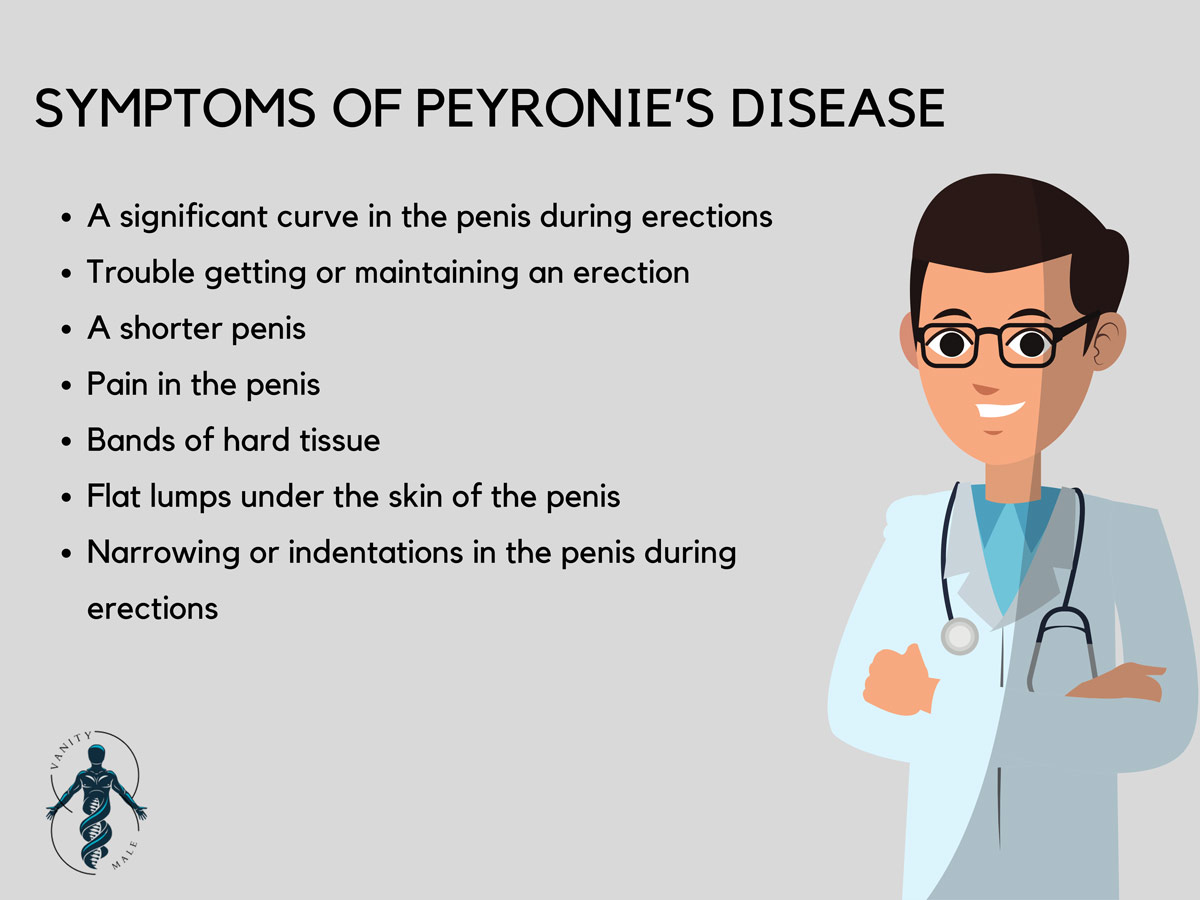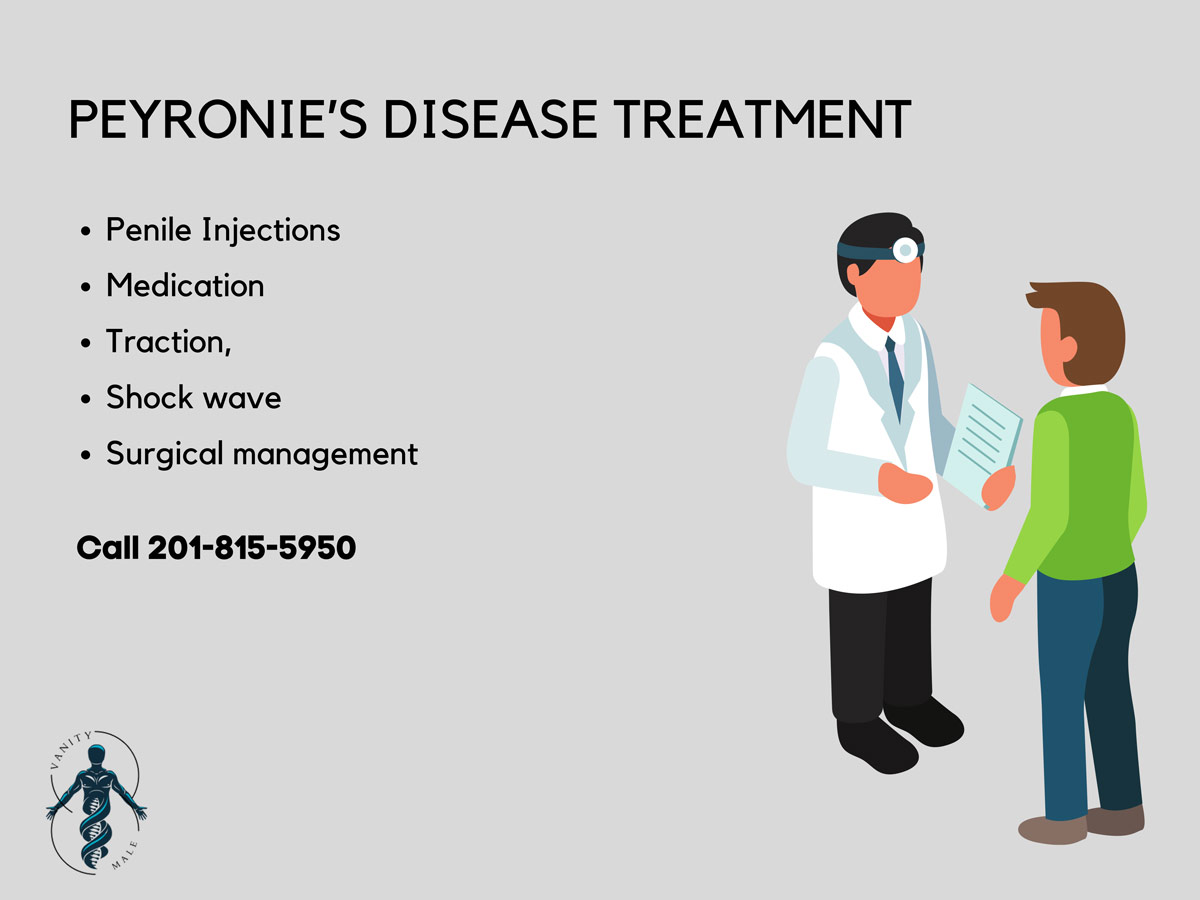Fibrous scar tissue inside the penis that causes curved, painful erections. Peyronie’s disease is caused by repeated penile injury, typically during sex or physical activity. Peyronie’s disease is where plaques (segments of flat scar tissue) form under the skin of the penis. These plaques can cause the penis to bend or become indented during erections. The plaques can often be felt through the skin and can be painful.
Symptoms
Peyronie’s disease plaques mostly (70% of the time) form on the top (or dorsal side) of the penis. The plaques make the tunica albuginea less flexible and may cause the penis to bend upwards when it stiffens. When plaques form on the bottom or side of the penis, the bend will be downward or sideways. Some men have more than one plaque, which may cause complex curves.
Sometimes plaques form that go all the way around the penis. These plaques most often do not cause curving but may cause the shaft of the penis to narrow like the neck of a bottle. This is sometimes called “bottle-necking” or “waisting”. In bad cases, the plaque may collect calcium and become very hard, almost like a bone. Men may also notice their penis has shrunk or gotten shorter.
Other signs that you may have Peyronie’s disease are:
- Bent/curved penis
- Lumps in the penis
- Painful erections
- Soft erections
- Having trouble with sex because of a bent/curved penis
Peyronie’s disease can make your quality of life worse. Over 75 out of 100 men with Peyronie’s disease are stressed and depressed because of it. Unfortunately, many men with Peyronie’s disease are embarrassed and choose to suffer in silence rather than get help.

How to treat Peyronie’s Disease?
In a very few cases Peyronie’s disease goes away without being treated. Most health care experts suggest treating the disease without surgery for the first 12 months after the disease is first noticed. Men with small plaques, not much curving of the penis, no pain and no problems with sex may not need to be treated. If you need to be treated, there are many choices like
- Penile Injections
- Medication
- Traction
- Shock wave
- Surgical management

FAQs:
Does Peyronie's disease hurt?
Yes, Peyronie’s disease can be painful and is most common in the early phase of the disease. However, pain may continue with erections even in the chronic phase. The severity of it varies depending on the person.
Does Peyronie's disease make the penis smaller?
Peyronie’s disease can shorten your penis. Treatments for Peyronie’s disease can attempt to restore length of the penis.
Is Peyronie's disease contagious?
No. Peyronie’s disease is not contagious or caused by any other disease.
Will Peyronie's disease keep me from having sex?
You can continue to have sex, but it might be painful or difficult for you or your partner. The greater the curve, the more difficult it is to have sex.
Can Peyronie's disease cause cancer?
No. Peyronie’s disease is not cancerous and does not turn into cancer.
Can Peyronie's disease cause infertility?
No. Peyronie’s disease is caused by plaque forming under the skin of your penis. It bends the penis, but does not affect fertility. It also does not cause any problems with urination or ejaculation.
Suffering from Peyronie's Disease?
Dr. Berberian offers non-surgical procedures in Bergen County, NJ using the latest treatments methods with a high success rate! Contact us today to schedule an appointment for a consultation.
We are happy to offer CareCredit financing program for our patients!
